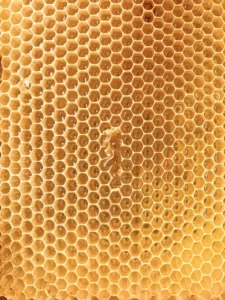Table of Contents
Manuka honey has gained popularity for its numerous health benefits, including its potential to alleviate anxiety. This natural sweetener has been used for centuries and is known for its antibacterial properties and rich nutrient content. In this article, we will explore the six health benefits of manuka honey, with a particular focus on its potential role in relieving anxiety.
Manuka Honey: An Overview
Manuka honey is a type of honey produced by bees that feed on the nectar of the manuka tree flowers. It is known for its unique antibacterial properties, attributed to a compound called methylglyoxal. This honey is also rich in minerals, probiotics, enzymes, antioxidants, and other phytochemicals that offer various health benefits.
1. Manuka Honey and Blood Sugar Regulation
One of the significant benefits of manuka honey is its ability to regulate blood sugar levels. Unlike white sugar, manuka honey is metabolized differently and produces less of a sugar spike. Research suggests that manuka honey may enhance insulin sensitivity and support the pancreas, the organ responsible for insulin production. A 2018 review of preliminary studies found that manuka honey has a “hypoglycemic effect” and may be a potential antidiabetic agent for managing diabetes and its complications.
2. Manuka Honey for Wound Healing
Manuka honey has been used for centuries in wound healing. Certain types of manuka honey, such as medical-grade honey, have shown potential in wound management due to their antimicrobial properties and ability to promote healing. It has been observed that manuka honey prevents the growth of bacteria on wounds, helps slough off dead tissue, and transports oxygen and nutrients into wounds for quicker healing. However, it is advisable to consult healthcare professionals for appropriate wound care.
3. Manuka Honey and Polyphenols
Manuka honey is rich in polyphenols, including flavonoids, which possess antioxidant and anti-inflammatory properties. These substances protect the body against oxidative stress, which can lead to various diseases such as cancer and heart disease. However, the polyphenol content in manuka honey can vary depending on its floral source and type.
4. Manuka Honey as a Cough Suppressant
A 2020 meta-analysis found that manuka honey can be an effective alternative to antibiotics in controlling cough frequency and severity. The thickness of honey and its possible antioxidant and antimicrobial properties are believed to provide relief for cough symptoms. However, it is important to note that honey should not be given to infants under one year of age due to the risk of botulism.
5. Manuka Honey for Mental Health
Research suggests that certain compounds in manuka honey, such as apigenin, caffeic acid, chrysin, ellagic acid, and quercetin, support a healthy nervous system, which may enhance memory and support mood. While more studies are needed, a 2014 review of research indicated that honey’s cognitive-enhancing properties can improve memory, reduce anxiety, and enhance intellectual performance later in life.
6. Manuka Honey and Gut Health
Early research indicates that manuka honey may support a healthy gut microbiome due to its probiotic and prebiotic properties. Probiotics are good bacteria that promote gut health, while prebiotics help these bacteria thrive. However, further research is needed to fully understand the extent of manuka honey’s impact on gut health.
In conclusion, manuka honey offers a range of health benefits, including its potential to alleviate anxiety. This natural sweetener regulates blood sugar levels, promotes wound healing, provides antioxidant protection, acts as a cough suppressant, supports mental health, and contributes to gut health. Incorporating manuka honey into your diet and daily routine may provide these health benefits, but it is always advisable to consult with healthcare professionals for personalized advice.



